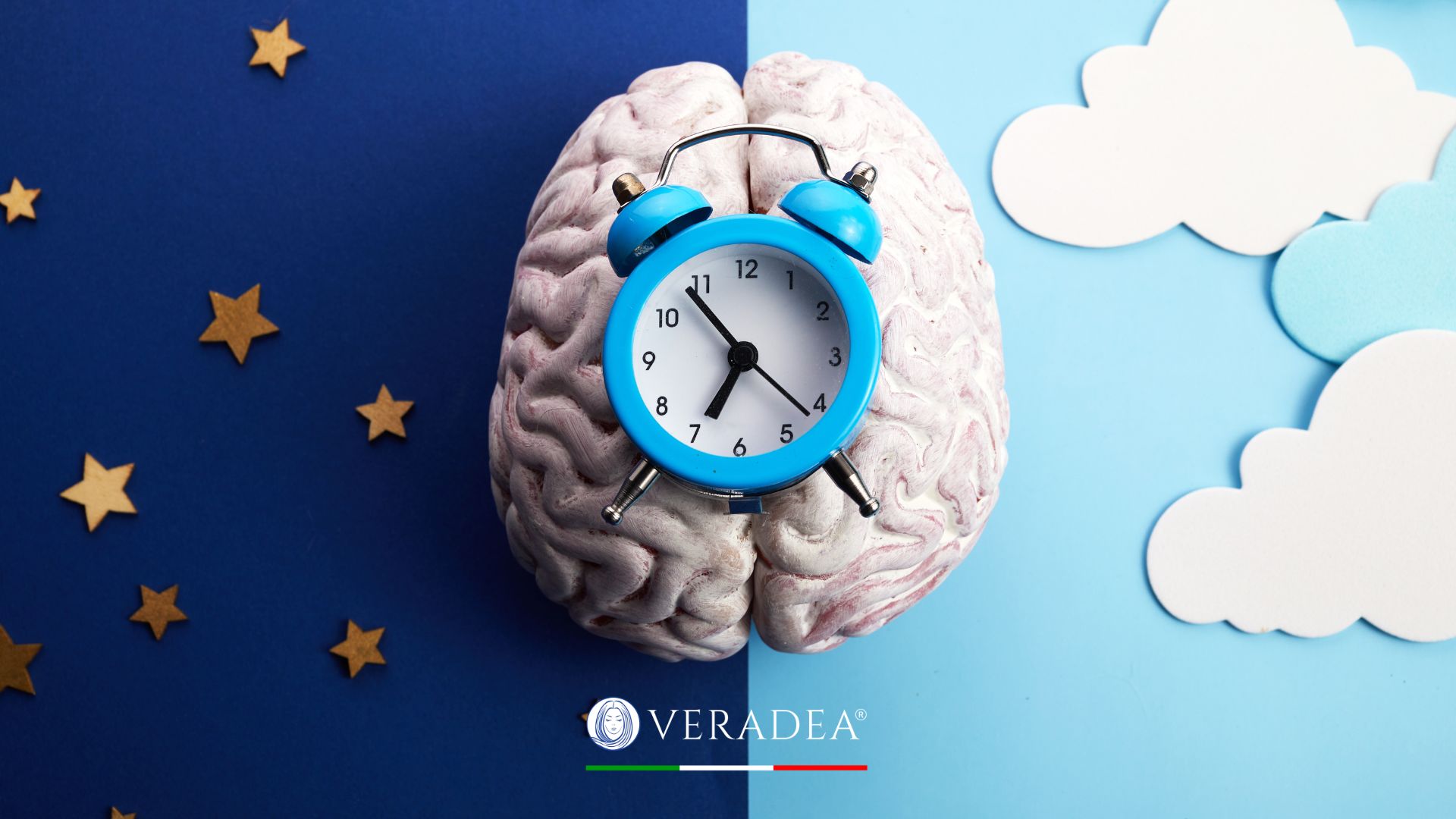
Here’s how the circadian sleep rhythm affects our lives
What Happens When the Circadian Rhythm is Disrupted and How to Manage It
How often do you find yourself going to bed very late and not feeling your best the next day? Although it's often considered "normal" these days, extending your day late into the night is not at all beneficial for your body. In fact, syncing up with the natural light-dark cycle is essential to maintaining balance and health.
But why is this the case, and how can we avoid disrupting the sleep-wake rhythm? Let’s dive deeper into the topic of the circadian rhythm of sleep.
What Is the Circadian Rhythm of Sleep?
The circadian rhythm is our internal “biological clock” that allows us to stay in sync with the external environment, adapting to different times of day based on the 24-hour cycle—primarily the alternation of light and darkness.
It’s a system governed by complex physiological mechanisms that operates in cycles of about three hours. Thanks to the circadian rhythm, our body can regulate core temperature, blood pressure, heart rate, hormone levels, metabolism, and other parameters throughout the day—thus controlling the sleep-wake cycle based on these biological signals.
The Different Phases of the Circadian Rhythm
Let’s look in detail at how the different phases alternate and how the circadian rhythm is regulated. These changes are mainly influenced by light and darkness and the production of certain substances like melatonin:
- 6:00 AM – 9:00 AM: This is when the body gradually starts up again after nighttime rest. Melatonin—the sleep hormone produced at night—starts to decrease. At the same time, cortisol levels rise, waking up the body and activating alertness.
- 9:00 AM – 12:00 PM: Cortisol peaks, and both body temperature and physical and cognitive functions continue to rise. This is the best time to take on the most demanding tasks of the day.
- 12:00 PM – 3:00 PM: After lunch, the parasympathetic nervous system signals the body to slow down to aid digestion. High glucose levels also suppress the production of orexin—a protein involved in maintaining alertness—making you feel more sluggish.
- 3:00 PM – 6:00 PM: Body temperature rises, and heart and lung efficiency are at their peak, making this the ideal time for physical activity, as muscles are more toned and active.
- 6:00 PM – 9:00 PM: The body begins to slow down again. As bedtime approaches, the liver and intestines become less efficient at digesting fats and sugars. For this reason, a light dinner is recommended to promote optimal rest.
- 9:00 PM – 12:00 AM: The pineal gland begins to produce melatonin, which plays a key role in inducing sleep.
- 12:00 AM – 3:00 AM: After midnight, melatonin reaches its highest levels, supporting deep and restorative sleep. The brain rejuvenates, and organs relax, preparing the body for the next day.
- 3:00 AM – 6:00 AM: Body temperature hits its lowest point, and melatonin gradually decreases, preparing the body for a gentle awakening.
3 Tips to Avoid Disrupting the Sleep-Wake Cycle
The circadian rhythm regulates many bodily functions, including the sleep-wake cycle and the different sleep phases.
When disruptions occur—such as from jet lag, shift work, or poor eating habits—the sleep-wake rhythm can become unbalanced. This often leads to fatigue, difficulty concentrating, and general discomfort. That’s why it’s important to respect your biological clock by adopting healthy habits:
- Watch your diet. Sleep and nutrition are closely linked. Pay attention to both the quantity and quality of the food you consume throughout the day. Ideally, eat a hearty, energizing breakfast, a balanced lunch, and a light dinner low in fats and sugars.
- Promote better sleep. Do relaxing activities in the evening, like taking a warm bath, sipping herbal teas made with chamomile or valerian, and if needed, take a melatonin-based supplement.
- Go to bed and wake up at consistent times. Align your schedule as much as possible with the natural light-dark cycle, and aim to sleep at least 7–8 hours per night to help your body adjust to a routine that matches the external environment.
But How Do You Sleep… Well?
In addition to syncing with your biological clock, it’s important that your sleep is truly restorative to allow your body and mind to recover energy. A major factor in this is the surface you sleep on. An old, uncomfortable mattress certainly doesn’t help.
If you think it’s time for a new mattress, check out Veradea products, designed to offer comfort, freshness, and hygiene for quality sleep.
Want to know more? Contact our team or visit one of the Veradea Stores near you.
